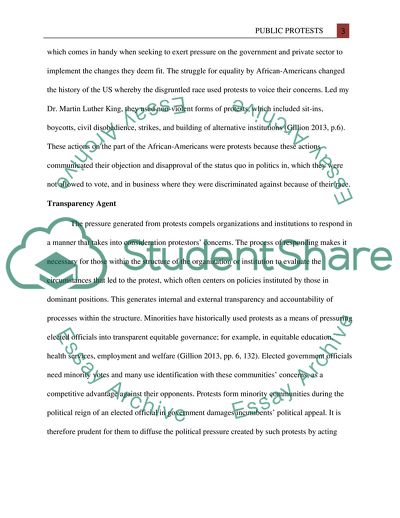Cite this document
(Protests in Modern Democracies Report Example | Topics and Well Written Essays - 1250 words, n.d.)
Protests in Modern Democracies Report Example | Topics and Well Written Essays - 1250 words. https://studentshare.org/social-science/1874124-what-place-do-you-think-public-protests-should-have-in-modern-democracies
Protests in Modern Democracies Report Example | Topics and Well Written Essays - 1250 words. https://studentshare.org/social-science/1874124-what-place-do-you-think-public-protests-should-have-in-modern-democracies
(Protests in Modern Democracies Report Example | Topics and Well Written Essays - 1250 Words)
Protests in Modern Democracies Report Example | Topics and Well Written Essays - 1250 Words. https://studentshare.org/social-science/1874124-what-place-do-you-think-public-protests-should-have-in-modern-democracies.
Protests in Modern Democracies Report Example | Topics and Well Written Essays - 1250 Words. https://studentshare.org/social-science/1874124-what-place-do-you-think-public-protests-should-have-in-modern-democracies.
“Protests in Modern Democracies Report Example | Topics and Well Written Essays - 1250 Words”. https://studentshare.org/social-science/1874124-what-place-do-you-think-public-protests-should-have-in-modern-democracies.


